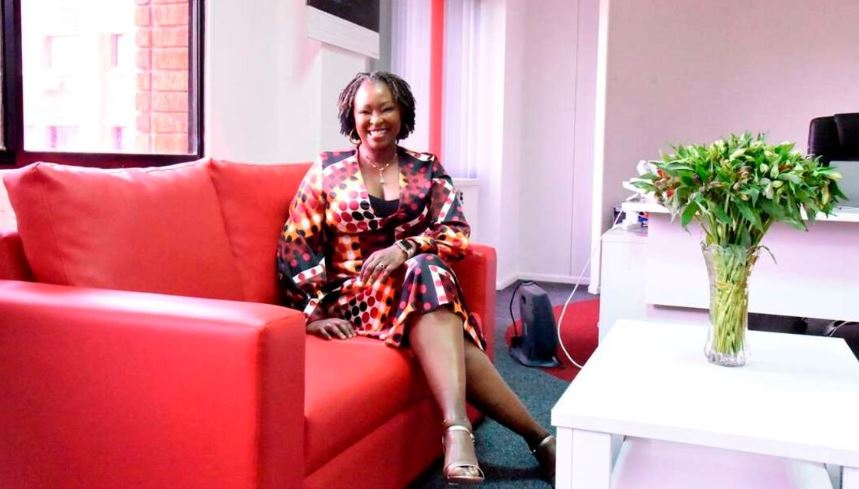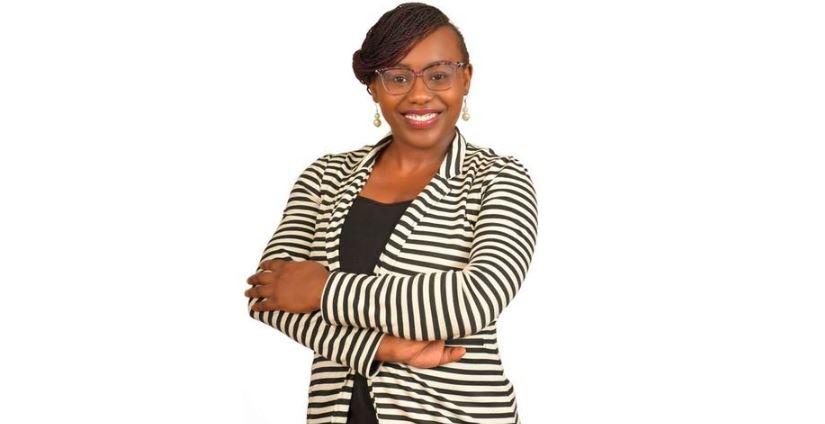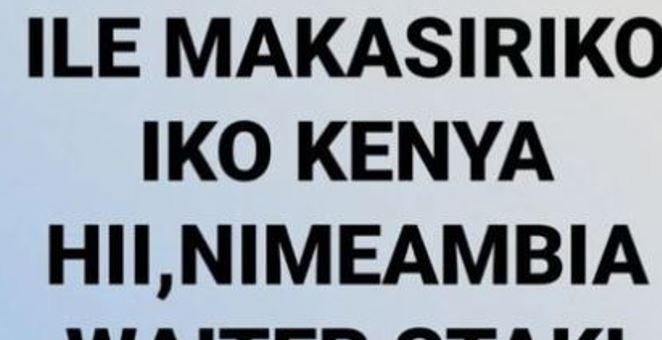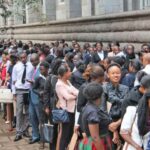
Ithau is also the chairperson of the board of Absa Securities, regional director at Stanford Seed-East Africa, and sits on the boards of many other companies.
She spoke to Jackson Biko for the Business Daily and below are some interview excerpts.
What headspace are you in right now?
A very good head space. You get to an age where you realise that it’s just about you. You don’t have to worry too much anymore about proving or justifying yourself. After years of worrying about whether you’re going to see things through, if your children will get through college, it’s suddenly all done.
It’s like coming through the clouds and getting to a space where everything is possible. I don’t see problems anymore, only opportunities and possibilities. I’m not saying this in a very flippant way. I think this is my last stretch to make a difference.
Is it surprising? This point.
It is more thankful than surprising. Because everybody prays for things to go the way they want. Life throws you curveballs and you ask yourself, ‘am I going to be able to get through them?’
But then you get to a place where you realise ‘oh my goodness, I’ve gotten over that, and now what is left doesn’t matter.’ When you started you had optimism, somewhere in between you had fear, and then suddenly you get over that curve and you’re okay.
What are your drivers right now?
To try and make everything I do bigger and better. I’ve got this new opportunity [Scangroup]. I’ve got a very clear vision that if I don’t double this business in the next four or five years, I would have failed. So it’s fundamental for me to figure out how to do that.
After you’ve proved yourself through life, your career, do you find that now you’re just looking for challenges to test yourself further?
Exactly. My biggest battle, an ever-ongoing battle that I have struggled with most of my life, is how to love exercise. [Laughter] I hate it to bits. But, increasingly when you get older the knees ache. The second thing which has been a pipedream for God knows how many years is to lose 10 kilos. [Chuckling].
I’ve been saying it for 15 years now. I see people walking, and running and I imagine how I would look if I was 10 kilos thinner in a dress. And I fail. The closest I got was five kilos and then I added it right back and it’s annoying. [Chuckles].
How was your childhood?
I grew up in Lang’ata and then Loresho. I remember being made to work. I’m not a morning person. I hate it when I have to wake up early but I grew up in a house where my mother, I can tell it to you exactly in her accent, [puts on a Meru accent] used to say ‘when it is morning, it is morning. When the sun is up the sun is up.’
We had general cleaning days; she’d make you clean what was already clean. There was a lot of discipline in our home, I hated the discipline. But I give my children the same discipline because I figured, there is something about that foundation that is important.
If you had a lot of courage, what would you pursue right now?
Take up a government job and try to make a change there. But I fear that I don’t know that space, it’s too complicated. Also, I’m too straightforward a person, I don’t know how to politick.
I don’t understand how a bribe is offered. When people use phrases like ‘you have to take care of us’ to do a job I don’t understand it. I would fail in politics because I wouldn’t know how to navigate that space.
If you had the same courage 10 or 15 years ago, what would you have done?
I’d have been bolder about the choices of jobs that I did. There were offers that I was given that I turned down because of a combination of family and fear of failing, especially some jobs outside of the country.
Do you recognise the woman you’ve become?
Yes. I’m very happy about the woman I’ve become. I’m more relaxed, more approachable. I live and let be. The greatest thing that I’d like to cultivate is being somebody who encourages and believes in everybody.
From where do you draw your strength?
Fear of failure. If you’re afraid of failing, you’ll always do everything to be strong. I also draw my strength from this utmost desire to be independent. I love my independence. What leaves me cold are relationships where somebody is completely dependent on another individual.
Freedom is the ability to have choices. And choices mean if I want to be independent, I can be independent. I draw my strength from that drive, that constant resilience, determination, and tenacity, to fight for my independence, whatever the case. And economic independence is a big place.
Is there a common question that younger women ask you about life?
“How do you do work-life balance?” I say there’s nothing like work-life balance. Work-life balance means you’ve assumed there are two things at the end of two spectrums and you have to balance the two. Why do you have to make choices?
Take your life to be this incredible house and all you are doing is moving from one room to the next. When you’re in your house, you don’t feel guilty when you’re sitting in your bedroom nor do you feel guilty if you spend a little extra time in the kitchen or the living room.
They’re all your spaces. You’ve owned them. So if you use that mentality, that these are the important rooms in your house, and you’re going to spend the right quality time in them and then you don’t spend your time, you will be riddled with guilt.
The second thing that a lot of women don’t believe, is they deserve anything. The minute you believe that you deserve something, you will go through it. They also ask me, ‘how do I walk into a room where there are just men?’ I tell them I walk into that room as a person.
Biko, do you ever walk into a room and say, ‘oh by the way I’m a man.’ No, you don’t. But as women go in saying, ‘oh my God I’m the only woman…’ You’re a person. The minute you think of yourself as a woman walking into a room, it’s a complete shift in your attitude.
But you are accomplished, successful, and affirmed. You will walk into a room differently than a young woman just starting, full of insecurities.
Well, I have two daughters who are both in their mid-20s. You just saw my daughter, she’s confident. They don’t walk into a room feeling insecure.
Yes, that’s because they have you. Can you imagine if they came from a very different background with a mother who isn’t confident or affirmed?
You’d be surprised by the courage in a lot of women.
What do you fear most now?
My biggest fear right now is around my girls. I worry if they will find their passion and purpose in life. I worry that they may struggle in finding great relationships if that is what they choose. That worries me a lot because the world has shifted from the relationship point of view.
Is confidence a product of time, age, and nurturing?
It’s a combination of all because there are incredibly confident two, three or five-year-olds. But then others build it. Others have got tonnes of experience but when you see them they’re a dithering mess. So it’s a combination of an environment allowing you, or you recognising it and having people hold your hand and push you.
Which period did you feel that your boat of life experienced the most turmoil?
My most tumultuous time was probably my early 20s. When I contested for Ms Kenya, I had a difficult time. There was judgment, some people thought I was something I wasn’t. When I was recruited by a big multinational the guys told me a lot later that it was the one woman in that panel who didn’t want me.
She said, ‘but do we need someone like that?’ [read, beauty queen]. Never mind you have a Bachelor’s degree. But I think that’s where my confidence started to build. I started to figure out how I needed to rise above that and ride above what society wanted or had decided for me and let people think differently.
So what would you say was your tipping point in life?
When I came back from South Africa as a marketing director for Unilever. Because I had found my faith and confidence. I had worked in several markets which allowed me a lot of latitude. I had been building towards that corner office downstairs.
That’s the first time I started getting fat by the way. [Laughs] It was frightful. I came back from a culture that was fairly healthy to Kenyans and their mandazis in the office. Why do we eat so many samosas and mandazis in the office? [Laughs].
What are people most surprised about when they meet you?
That I am approachable. [Chuckles] That I’m easy. That I like to have fun.
What have you discovered in your 50s that you didn’t experience in your 40s?
Everything. Fun. My God! I have always been a spontaneous creative person, but it was controlled when I was younger. Very controlled and proper. When I turned 50, some six years ago, I said the hell with all that. [Chuckles]. This is simply my best decade. My spontaneity is at its highest.
When people say, “I’m working on myself,” do you still say that?
Yes.
What are you working on?
My weight. [Laughs] I’m also working on my structure because I do so many different little things and I need a lot more structure and discipline. My biggest condition for any PA [personal assistant] I have is that they have to be ruthless in managing me, my diary, what I need to do, and where I have to be.
So apart from your knees, is there anything that makes you insecure?
[Laughing] My wonderful knees. But they’ve done well under the circumstances. Last year, there was a time I looked at my wonderful shoe hall and all my heels and I was like, ‘my God, am I never going to wear these heels again?’ And it was such a horrible moment.
But let me tell you now Biko, eh, I’m wearing my heels again. So my knees I think are doing well. I have an incredible personal trainer who is really pushing me to build strength and everything else. What did you ask me?
I don’t know how to ask this question. There’s this misconception out there that you can’t be powerful, intelligent, successful, or independent, which you mentioned, and still be able to stay married.
I’ve been married for 28 years.
There must be a secret…
I don’t know if it’s a secret or it is a combination of the confluence of the individuals. My husband and I are very different. He’s a lot more introverted while I walk into a room and I’m saying hi to everybody. I think there’s an unspoken agreement that marriage is three things.
It’s interdependence, independence, and without dependence. I think I married somebody who is very secure. You need a secure individual who is happy to support you, who is proud of your achievements, and who’s going to push you and not hold you back. And you are going to do the same.
From the top of the perch that you now sit in, does it still look like a man’s world?
I can get 20 women here in this room who are running big businesses. Right this moment. I could not have done that 20 years ago. So that is the tipping point. We’re now at a tipping point where we’re starting to drive scale.
One of the things I’m trying to create is a “bouy’s club”. All the leading organisations now, all the chairs, and all the significant parastatals and organisations are [headed by] women. And we all know each other. It’s called a Bouy’s Club.
Source: Business Daily








